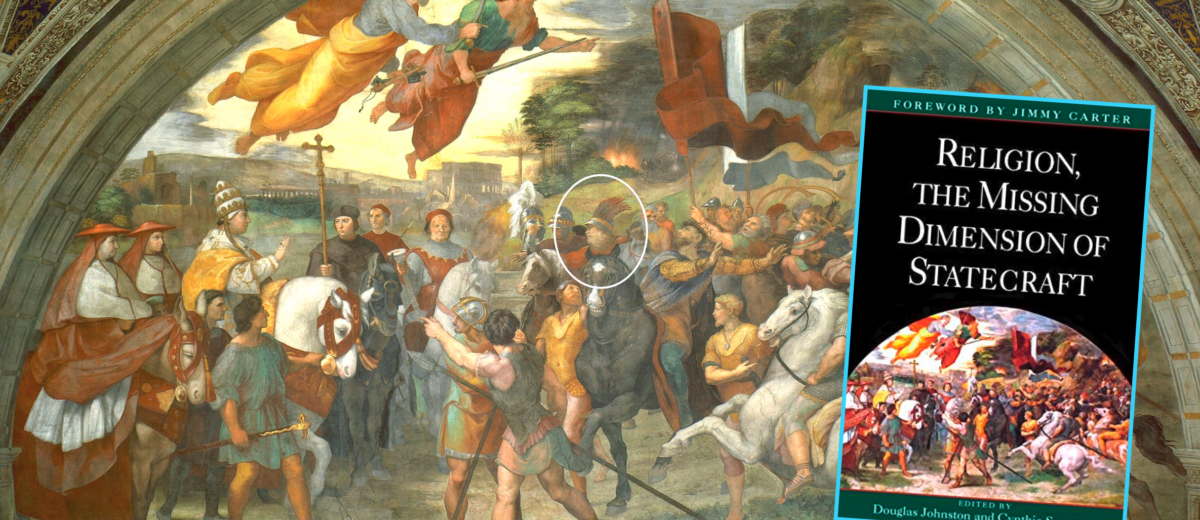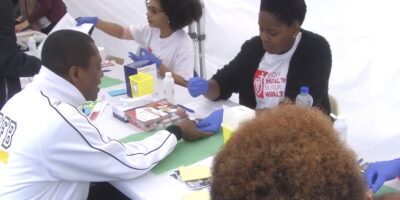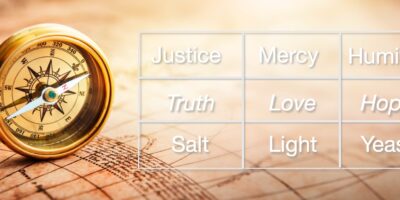One of history’s most dramatic encounters between spiritual and military power is depicted in this fresco in the Vatican by the Renaissance artist Raphael under commission.
In 452 AD, the Roman Emperor Valentinian III sent Pope Leo I to negotiate with Attila the Hun near Mantua in northern Italy. Great panic was gripping Rome as Attila and his all-conquering army moved southwards leaving a trail of devastation behind.
Raphael painted this moment with Leo on the left wearing a conical triple crown (the ‘triregnum’ actually introduced centuries later). Attila (probably the figure encircled centre-right with red cloak, and feathered helmet) is alarmed by a vision of Rome’s patron saints, St. Peter and St. Paul, shown in the air with swords drawn warning him to spare the city.
Whether by such a vision or Leo’s calm authority and moral courage, Attila was persuaded to withdraw, and the Eternal City was saved from destruction. The encounter cemented Leo’s reputation as a defender of civilisation and faith and led to his recognition as Leo the Great.
Raphael’s fresco embellishes the cover of a landmark book on diplomacy and peace-making published over thirty years ago, Religion: the missing dimension of statecraft. I have the privilege this weekend of talking with Dr Douglas Johnston, the driving force behind the book project and its co-editor, in this month’s Schuman Talk.
I discovered the book soon after it was published as one of the few sources in English telling the story of post-war Franco-Germanic reconciliation involving Robert Schuman, Konrad Adenauer and Frank Buchman. However, I had never really noticed the painting on the cover, nor its relevance for the theme of the book until preparing for this interview.
Enlightenment prejudice
Dr Johnston and his collaborators cite examples from Europe, Central America, Asia, and Africa to show how religion played a crucial role in many international conflicts. Yet for the most part, diplomacy either has ignored or misunderstood its role. In his foreword, former President Jimmy Carter stated that the book posed ‘a challenge to diplomats and politicians, religious figures and laypersons, analysts and academics alike’. For ‘Enlightenment prejudice’ had produced a tendency ‘to separate political from spiritual life (and to) ignore a vital aspect of international relations–one that can be a powerful tool in negotiations’.
The rigorous separation of church and state in America had desensitised many to the fact that much of the rest of the (non-western) world did not operate on a similar basis. For over eighty per cent of the world’s population, religion was an important part of social and political life. American foreign policy practitioners, for example, were thus often inadequately equipped to deal with situations involving other nation states where the imperatives of religious doctrine blended intimately with those of politics and economics.
At times this had led to uninformed policy choices, wrote Dr Johnston, particularly in American dealings with countries of the Middle East. ‘We also inadequately appreciate the transformational possibilities that exist when the parties involved in a conflict can be appealed to on the basis of shared spiritual convictions or values. Under the right conditions, parties can operate at a higher level of trust than would otherwise be possible in the realm of realpolitik.’
This book, and the International Centre for Religion and Diplomacy he established in 1998, have made Dr Johnston the acknowledged ‘Father of Faith-based Diplomacy’. He was the youngest officer in the navy (aged 27) to qualify for command of a nuclear submarine, served as Deputy Assistant Secretary of the Navy, and earned a doctorate in Political Science from Harvard University. He has engaged in peacemaking in numerous hotspots including Sudan, Kashmir, Pakistan, Afghanistan, Iran, Syria, Yemen, Colombia and Saudi Arabia.
First responders
Doug, as he prefers to be addressed, is now also focusing on Ukraine where faith-based actors and civil leaders often act as first responders: transforming churches and mosques into shelters, organising local food distribution, leading trauma support groups, and sustaining cultural cohesion. Yet, these actors—despite their impact—largely function in isolation, marginalised from formal political and peace processes.
This fragmentation leaves the national recovery effort without the direct input of trusted, frontline actors, he argues. Activating Ukraine’s community and moral leadership positions local actors as essential architects of humanitarian action and societal recovery.
As Ukraine faces an uncertain geopolitical moment, faith and community leaders can play a strategically urgent role. As mediators, advocates, and healers, they can provide a vital counterweight to political stalemate and social exhaustion. In the coming year, believes Doug, religious and civic actors will be crucial in pressing for negotiation, sustaining intercommunal solidarity, and preparing communities for the healing and compromise that peace will require.
Whatever direction the conflict will take, these networks will remain essential to preventing further fragmentation, supporting displaced families, and maintaining hope and perseverance among Ukraine’s people.

Till next week,



